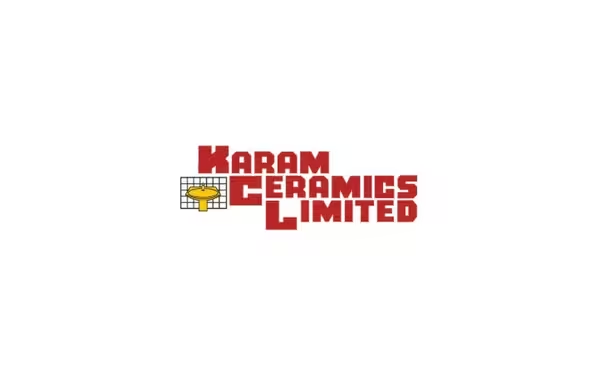Sunday, December 22, 2024 06:49 AM
Karam Ceramics Limited: Resilience in Pakistan's Ceramics Industry
- KCL holds 90.31% stake by directors and families.
- Net sales surged by 21.53% in 2021.
- COVID-19 caused a 35.59% drop in sales in 2020.
 Image Credits: brecorder
Image Credits: brecorderKaram Ceramics Limited showcases resilience in Pakistan's ceramics industry, recovering from COVID-19 challenges with significant sales growth.
Karam Ceramics Limited (KCL) has been a significant player in Pakistan's ceramics industry since its incorporation as a public limited company in 1979. The company specializes in manufacturing and selling wall and floor tiles, catering to both local and international markets. As of June 30, 2024, KCL has 14.55 million shares outstanding, held by 284 shareholders. Notably, the company’s Directors, CEO, and their families hold a substantial 90.31 percent stake, while the local general public owns 7.29 percent. Banks, Development Finance Institutions (DFIs), and Non-Banking Financial Institutions (NBFIs) account for 2.15 percent of the shares, with the remaining ownership distributed among various other shareholders.
KCL's financial performance has shown considerable fluctuations over the years. In 2019, the company experienced a surge in net sales, attributed to improved tile prices and increased sales volume. The production reached 2.668 million square meters, marking a 21 percent increase from the previous year. This growth led to a capacity utilization of 41 percent, up from 34 percent in 2018. Despite facing high fuel and electricity costs, KCL managed to achieve a gross profit increase of 37.41 percent, resulting in a gross profit margin rise from 11.27 percent in 2018 to 13 percent in 2019.
However, the year 2020 brought unprecedented challenges due to the COVID-19 pandemic, which severely impacted construction and infrastructure activities across the country. KCL's net sales plummeted by 35.59 percent, and production fell to 1.8 million square meters, leading to a capacity utilization drop to 28 percent. The company faced a gross loss of Rs.66.74 million, as it could not adjust prices due to decreased demand. Despite these setbacks, KCL's other income saw a remarkable increase, primarily due to adjustments on interest-free loans from directors, which helped mitigate some losses.
In 2021, KCL began to recover, with net sales increasing by 21.53 percent year-on-year. This recovery was fueled by a stronger demand for tiles, driven by government initiatives for low-cost housing and a booming real estate market. The company produced 2.36 million square meters of tiles, achieving a capacity utilization of 36 percent. KCL's gross profit reached Rs.35.74 million, translating into a gross profit margin of 3.17 percent. The operating profit also improved, reflecting the company's ability to manage costs effectively.
Despite the challenges faced in recent years, KCL's journey illustrates the resilience of the ceramics industry in Pakistan. The company's ability to adapt to market conditions and recover from setbacks is commendable. As KCL continues to navigate the complexities of the market, stakeholders will be keenly observing its strategies for growth and profitability in the coming years. The fluctuating patterns of net sales and profits serve as a reminder of the volatile nature of the industry, but with strategic planning and execution, KCL has the potential to emerge stronger.













